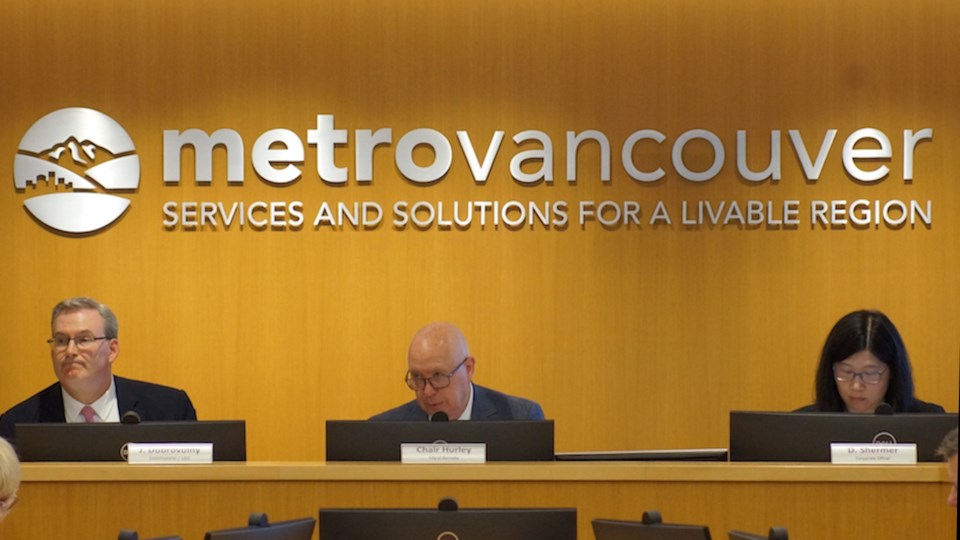The expected rate of population growth in the Lower Mainland is “a bit too much,” especially if the federal government does not properly plan for the infrastructure required to accommodate it, says Metro Vancouver Regional District chair Mike Hurley.
Last week, Metro Vancouver released new population projections showing the region of 23 local governments is expected to grow, on average, by 50,000 new residents each year until 2050 when the total population reaches 4.21 million people.
If that pace proves true, that’s a 1.7 per cent annual compound growth rate from 2021 when population reached about 2.6 million.
Metro Vancouver stated the new growth rate is based on “evolving federal immigration policy, and trends in non-permanent residents.”
Prior to the COVID-19 pandemic, the region was expecting 35,000 new residents annually to reach 3.8 million.
The new analysis shows a low-growth scenario of 3.98 million people and a high-growth scenario of 4.39 million people.
“I think the growth rate is a bit too much,” said Hurley.
“I think that — and this is just my personal opinion, not Metro Vancouver's — until our infrastructure really starts to catch up and there's infrastructure deficit everywhere, including schools, hospitals, not just the Metro Vancouver infrastructure and other cities’ infrastructure, I just think it's a lot to be put on to municipalities,” said Hurley, who is also the mayor of Burnaby.
And the federal government, which applies GST on new homes, “is not really stepping up to help out when it comes to infrastructure projects,” said Hurley.
The analysis also noted that by 2035 all of the population growth will be from immigrants, based on birth rate trends, meaning the issue falls squarely on immigration policy.
As an immigrant from Northern Ireland, Hurley said immigration “has to be controlled in more of a solid fashion and more reasoned fashion, so that we can keep up with the infrastructure issues.”
Asked where this growth directive is coming from, Hurley said the business community concerned about their workforces is “probably a primary driver.”
Asked if the region, or Canada in general, can sustain a lower growth rate — such as Scandinavian nations — given its dependence on construction, buying and selling of homes, Hurley said: “I think that's such a big part of our economy now that we've become reliant on that a bit, but I think we can live well within that one per cent growth range, one and a half per cent growth range, and I think our economy could handle that.”
Hurley said all three levels of government need to be on the same page.
“There needs to be some think tank amongst them, you know, the three orders of government, laying out exactly what the plan is here. Because I'm not seeing a real plan. I'm just seeing this is what's happening.”
Glacier Media also spoke to Eric Woodward, Metro Vancouver’s chair of the regional planning committee, for his personal opinion on projected growth rates and whether they are the right path for the region.
“I don't think about it in those terms, because a lot of these predictions are based on inputs that are out of the control of Metro Vancouver or local government.
“There isn't a ton of political input in terms of producing them, and whether they're right or wrong or not, is also not much of a consideration that I've seen. This is, again, an academic exercise in predicting what is going to happen,” he said.
Woodward, who said he ran on a pro-building campaign in 2022, suggested cities are effectively forced to react to the population increases of the federal government.
“I think it would be more important to say, ‘Well, if it is going to happen, then we need to improve how we're managing it.’ I think there's lots of areas where that can be improved.”




